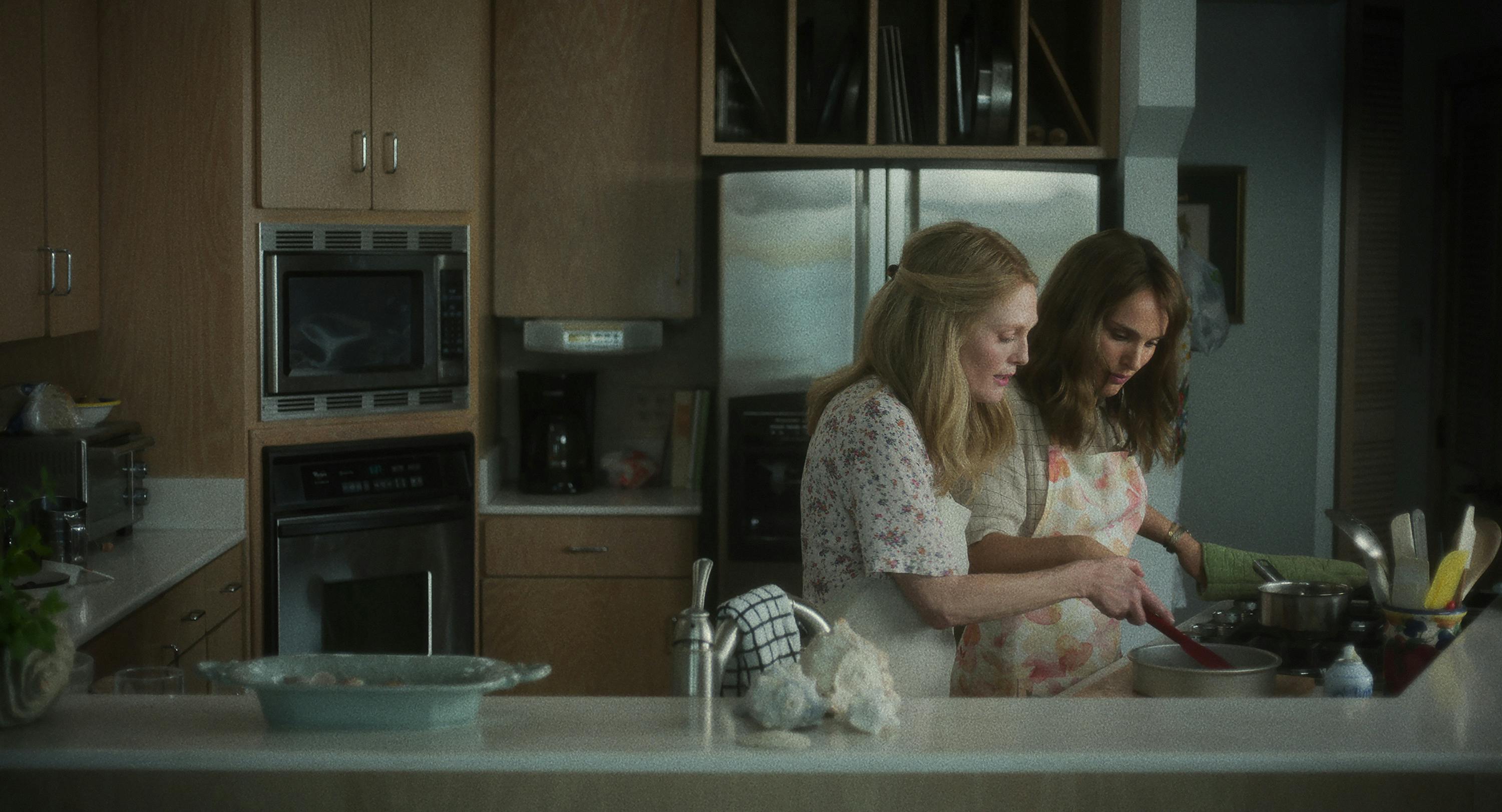In Todd Haynes's dark comedy May December, Julianne Moore and Natalie Portman face off in the kitchen.
Is there any scene more domestic than a matriarch busy in the kitchen, laboring over an enviable cake? In May December, directed by subversive auteur Todd Haynes and written by first-time screenwriter Samy Burch, baked goods play a crucial role in a complicated woman’s sense of purpose and become a lifeline to a traditional and ordinary life, something she abandoned decades earlier.
After making tabloid headlines in the 90s for having an affair with a seventh grader, Gracie Atherton-Yoo (Julianne Moore) is married to the aforementioned middle schooler, a now 36-year-old Joe (Charles Melton), and living with their children in Tybee Island, a close-knit community outside of Savannah, Georgia. Having rebuilt her life after the scandal, Gracie has found stability baking cakes for her neighbors, friends, and acquaintances. These cakes are fundamental to her identity: When Haynes first introduces the character in the film, she is icing one diligently, perhaps nervously, as she awaits the arrival of Elizabeth Berry (Natalie Portman), the actor who is slated to play Gracie in a film and is coming to town to study her for the project.
As Elizabeth spends time with Gracie, she is brought into the woman’s fraught yet ordinary world, joining her for flower-arranging classes, family dinners, shopping trips, and cake-making sessions at home. Elizabeth follows closely along as Gracie takes her through one of her signature recipes, not shy to correct her famous pupil lest she add in an ingredient haphazardly. “Do it nicely,” Gracie says. “It really does matter how it looks.”
But it is when Elizabeth probes deeper, after she meets with Gracie’s lawyer, Morris Sperber (Lawrence Arancio), that she discovers the darker truth underpinning the seemingly fruitful hobby-turned-business. The homemaker might be busy with orders, but many of them are duplicative requests from the same handful of neighbors who are eager to keep Gracie’s sense of self intact out of pity, a way to pacify a marked woman unwilling to confront her past. As the lawyer tells a stunned Elizabeth, “How many pineapple upside-down cakes can a family eat?”




